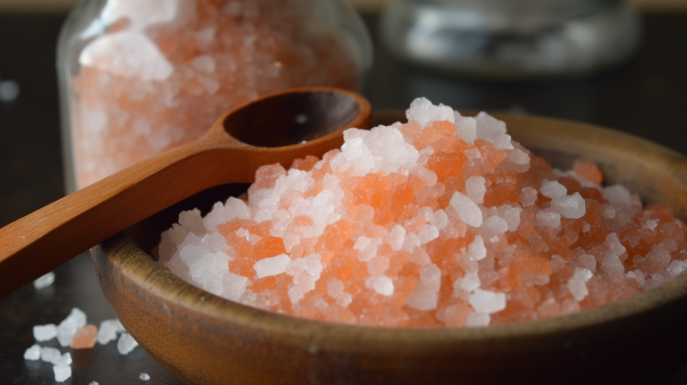Salt cravings are a common phenomenon experienced by many individuals. Whether it’s reaching for a bag of salty chips or sprinkling a bit more salt on our meals, the desire for salt can be quite compelling. While excessive salt consumption can pose health risks, our bodies also have a natural inclination towards craving salt for various reasons. In this article, we delve into the science behind salt cravings, exploring the physiological and psychological factors that drive this phenomenon.
Understanding Salt Cravings:
1. Biological Necessity: Salt, chemically known as sodium chloride, is an essential nutrient that plays a crucial role in maintaining fluid balance, nerve function, and muscle contractions in the body. Our bodies cannot produce sodium on their own, so we rely on dietary intake to meet our sodium needs. When sodium levels drop too low, a condition known as hyponatremia, the body sends signals to replenish sodium stores, triggering cravings for salty foods.
2. Electrolyte Balance: Sodium is one of the key electrolytes in the body, along with potassium, calcium, and magnesium. These electrolytes are essential for regulating fluid balance, nerve transmission, and muscle function. When electrolyte levels are imbalanced, such as during excessive sweating or dehydration, the body may crave salt as a means to restore equilibrium. This is often why athletes or individuals engaging in strenuous physical activity may experience heightened salt cravings.
3. Taste Preference and Habituation: Humans are wired to enjoy the taste of salt. Our taste buds are sensitive to salty flavors, and over time, we can develop a preference for salty foods. Habitual consumption of salty snacks or processed foods can further reinforce this preference, leading to increased salt cravings. Additionally, salt is often used as a flavor enhancer in cooking, making it a staple ingredient in many dishes.
4. Hormonal Regulation: Hormones also play a role in regulating salt cravings. The hormone aldosterone, produced by the adrenal glands, helps regulate sodium levels in the body by promoting sodium retention in the kidneys. Fluctuations in aldosterone levels, such as during times of stress or hormonal changes, can influence salt cravings. Similarly, hormonal imbalances associated with conditions like PMS (premenstrual syndrome) may contribute to increased cravings for salty foods.
5. Psychological Factors: Emotional and psychological factors can also influence salt cravings. Stress, anxiety, and emotional distress can trigger cravings for salty comfort foods as a form of self-soothing or coping mechanism. Moreover, cultural and social influences can shape our dietary preferences, with salty snacks often being associated with indulgence or pleasure.
Managing Salt Cravings:
While salt cravings are natural, excessive salt intake can have adverse effects on health, including high blood pressure, cardiovascular disease, and kidney problems. Therefore, it’s essential to manage salt cravings in a healthy manner. Here are some tips:
- Opt for Whole Foods: Choose whole, minimally processed foods over highly processed snacks, which tend to be high in sodium.
- Use Herbs and Spices: Experiment with herbs, spices, and other flavorings to enhance the taste of your meals without relying heavily on salt.
- Read Labels: Be mindful of sodium content when purchasing packaged foods and opt for lower-sodium options whenever possible.
- Stay Hydrated: Proper hydration is key to maintaining electrolyte balance. Drink plenty of water throughout the day, especially if you’re engaging in physical activity or in hot weather.
- Listen to Your Body: Pay attention to your body’s signals and try to distinguish between true physiological cravings and emotional cravings. Find alternative ways to cope with stress or emotional discomfort without resorting to salty snacks.
Conclusion: Salt cravings are a complex interplay of biological, physiological, and psychological factors. While our bodies require sodium for optimal functioning, it’s essential to strike a balance and consume salt in moderation. By understanding the underlying reasons for salt cravings and adopting healthy eating habits, we can satisfy our cravings while supporting our overall health and well-being. Remember, moderation is key, and listening to your body’s cues is paramount in achieving a balanced and nutritious diet.

